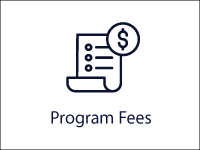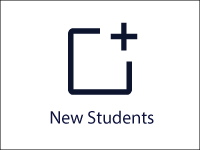Professional STEM Master's
COURSES
A 33-credit STEM career-focused master's degree
The PSM programs are individualized depending on a student’s prior education and experience as well as their career goals. A student’s Plan of Study is devised in collaboration with their advisor. Courses are divided into content classes (18 credits), laboratory training (8 credits), and professional development (7 credits).
Courses are designed to enrich a student’s scientific and technical knowledge, improve laboratory skills, and experience. Student enrollment can be part-time or full-time and start in Fall, Spring, or Summer terms. The program strives to provide later afternoon/evening options for working professionals. However, some courses outside the PSM core courses may be during normal work hours.
Student’s Plan of Study:
A student’s Plan of Study is devised with their advisor. We allow flexibility, accounting for a student’s prior academic work, work experience, and career goals. Students are required to take 33 credits divided into content classes (18 credits), laboratory training (8 credits), and professional development (7 credits).
PSM Cohort Core Courses:
All PSM students take these three courses focused on professional development:
- MCB 5490: Industrial Insights
- MCB 5491: Professional Development Seminar (two semesters required)
- MCB 5900 (cross-listed as GRAD 5900): Professional Writing & Communication Skills
These courses are designed to aid students in preparing for their career by enhancing their professional writing and presentation skills, increasing their industrial knowledge, and exposing students to a variety of professionals in industry, academia, government, and the non-profit sector.
Modules:
Weekend and between term modular (“executive format”) courses typically take place over three days, usually weekends (Friday 5:00pm – 8:30pm, Saturday and Sunday 09:00am – 5:00pm, but may vary depending on content, credit value, or over Winter Break/May Term.
Internship:
An experiential component, the internship, is a required part of any of the MCB’s PSM curriculum. PSM faculty and UConn’s Career Center offer assistance to students in searching for internship/co-op opportunities as well as resume and cover letter support.
The purpose of the internship/co-op is for students to:
- Connect and apply academic learning to real-world environments
- Improve interdisciplinary critical thinking skills
- Develop professionalism, communication, and team-building skills
- Identify, assess, and/or address specific issues in their scientific field
- Cultivate and grow a professional network
Students typically obtain internships at the locations of major biotech hubs, small CT start-ups (via UConn’s TIP program) or academic institutions. Normally internships are paid at a graduate level (M.S.). The exact amount of compensation depends on the type of position, company size, and location.
There are usually more internship/co-op opportunities over Summer Term than at any other time due to the flow of operational activities in industry and academia. However, there are a small number of internships/co-ops available starting in January or September.
Example Course Schedule:
First Fall Semester
| Designation | Number | Title | Credits | Course Type |
| MCB | 5491-000 | Professional Development Seminar | 1 | Prof. Dev. |
| MCB | 5900-000 | Professional Writing and Communication Skills | 1 | Prof. Dev. |
| MCB | 4211-000 | Basic Immunology | 3 | Conceptual |
| MCB | 5672-000 | Module: Applied Bioinformatics | 1 | Practical |
| MCB | 5427-001 | Module: Laboratory Techniques in Functional Genomics - Introduction to Molecular Biology Techniques | 1 | Practical |
| MCB | 4219-000 | Developmental and Regenerative Biology | 3 | Conceptual |
| Total Semester Credits | 10 | |||
First Spring Semester
| Designation | Number | Title | Credits | Course Type |
| MCB | 5491-000 | Professional Development Seminar | 1 | Prof. Dev. |
| MCB | 5490-000 | Industrial Insights | 1 | Prof. Dev. |
| MCB | 5240-000 | Virology | 3 | Conceptual |
| MCB | 5427-003 | Laboratory Techniques in Functional Genomics - Genotyping and Sequencing | 1 | Practical |
| MCB | 6897-000 | Research | 1+ | Practical |
| MCB | 5430-000 | Analysis of Eukaryotic Functional Genomic Data | 3 | Conceptual |
| Total Semester Credits | 10+ | |||
First Summer Semester
| Designation | Number | Title | Credits | Course Type |
| GRAD | 5991-000 | Graduate Internship | 3 | Prof. Dev. |
| MCB | 5670-000 | Module: Theory and Practice of Laboratory Techniques in Microbiology | 1 | Practical |
| MCB | 5895-000 | Microscopy and Cellular Imaging | 1 | Practical |
| Total Semester Credits | 5 | |||
Second Fall Semester
| Designation | Number | Title | Credits | Course Type |
| MCB | 5427-004 | Laboratory Techniques in Functional Genomics - Cell Culture Techniques | 1 | Practical |
| MCB | 5480-000 | Frontiers in Applied Genomics | 1 | Prof. Dev. |
| MCB | 5681-000 | Mechanisms of Bacterial Pathogenicity | 3 | Conceptual |
| MCB | 5427-002 | Module: Laboratory Techniques in Functional Genomics - Real-Time PCR Techniques | 1 | Practical |
| MCB | 6897-000 | Research | 1+ | Practical |
| MCB | 5210-000 | Molecular Endocrinology | 3 | Conceptual |
| Total Semester Credits | 10+ | |||
For more information on course offerings, please see our course requirements for each program.
Applied Genomics Course Requirements
Applied Biochemistry and Cell Biology Course Requirements
Applied Microbial Systems Analysis Course Requirements








